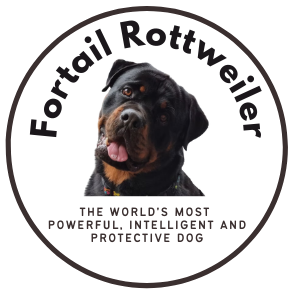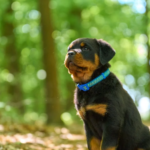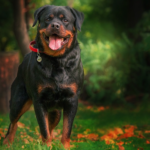Rottweiler puppies, like all growing dogs, have unique nutritional needs that must be met in order for them to develop properly and stay healthy. As a responsible pet owner, it is important to understand what your Rottweiler puppy needs in order to thrive. In this article, we will explore the best foods for Rottweiler puppies, as well as provide guidelines on how much to feed them and how to supplement their diet. You can also watch this video to give you an overview of the best foods for rottweiler puppy.
Understanding the Nutritional Needs of Rottweiler Puppies
Rottweiler puppies, like all dogs, require a balance of protein, fat, and carbohydrates in their diet. Protein is especially important for Rottweiler puppies. It is responsible for building and repairing muscle tissue, as well as maintaining healthy skin and coat. Fat is also important for Rottweiler puppies, as it provides energy and helps to keep their coats shiny. Carbohydrates, on the other hand, provide energy and are important for healthy digestion.

It’s also important for Rottweiler puppies to get the right amount of vitamins and minerals. These are needed for growth and development. Adequate calcium and phosphorus are needed for strong bones and teeth. While vitamin A and E are important for healthy eyes and skin. Additionally, Rottweiler puppies require a moderate amount of exercise to maintain a healthy weight and to promote muscle development. A well-balanced diet and regular exercise are essential for the overall health and well-being of Rottweiler puppies. It is important to consult with a veterinarian to determine the specific nutritional needs of your individual rottweiler puppy based on their age, weight, and activity level.
In summary, Rottweiler puppies require a well-balanced diet that includes a balance of protein, fat, and carbohydrates, as well as vitamins and minerals. Feeding them at the right time and portion size. As well as monitoring their weight and considering the quality of the food, are all crucial for their overall health and well-being. It’s important to consult with a veterinarian or professional nutritionist to ensure that your rottweiler puppy is getting all the necessary nutrients.
The Importance of Protein for Rottweiler Puppies

As a large and active breed, Rottweiler puppies require a diet that is high in protein. The best sources of protein for Rottweiler puppies are animal-based proteins, such as chicken, beef, and fish. These proteins are also rich in essential amino acids, which are critical for muscle development and repair. It is important to choose a high-quality protein source for your Rottweiler puppy. Lower quality protein sources may not provide the same level of nutrition.
Protein is essential for the growth and development of Rottweiler puppies. It is the building block of muscle, bone, and other tissues in the body. Puppies require a higher protein intake than adult dogs because they are still growing and developing. A diet that is high in protein will help support strong muscle development and healthy bone growth.
Additionally, protein is important for maintaining a healthy immune system. Rottweiler puppies are more susceptible to infections and illnesse. It is crucial that they have adequate protein intake to support their immune system. A diet that is rich in protein can also help to improve coat and skin health. Leading to a shiny, healthy coat.
It is also important to note that not all proteins are created equal. Animal-based proteins such as chicken, fish, and beef are considered to be of higher quality than plant-based proteins. It is essential to choose a high-quality protein source when selecting a food for your Rottweiler puppy. By ensuring that your puppy receives an adequate amount of protein in their diet, you can help ensure that they grow and develop into healthy, strong adult dogs.
The Role of Fat in a Rottweiler Puppy’s Diet
Fat plays an important role in a Rottweiler puppy’s diet. It provides a source of energy and helps to support the growth and development of their muscles and bones. It is also necessary for the absorption of certain vitamins and minerals. That helps to keep their coat and skin healthy. It’s important to ensure that the diet of a Rottweiler puppy includes a balanced amount of fat. Too little can lead to deficiencies and too much can cause weight gain and other health problems. When choosing a food for your Rottweiler puppy, look for options that have a moderate amount of fat. And come from high-quality sources such as fish, chicken, and beef.
Related topics:
- Rottweilers Deserve Only the Best: A Comprehensive Guide to Choosing the Perfect Dog Food for Your Rottie
- The Best Food For A Healthy Rottweiler Puppy
- Is Royal Canin Good For My Rottweiler Dog?
Fiber and Carbohydrates for Rottweiler Puppies

Fiber and carbohydrates are essential nutrients for Rottweiler puppies. They provide the necessary energy and support for growth and development. The Fiber, found in fruits, vegetables, and whole grains, helps to keep the digestive system healthy. It also prevents constipation and diarrhea. Carbohydrates, also found in whole grains and some fruits and vegetables, provide the energy needed for daily activities. It also support the growth of strong muscles and bones. Feeding your Rottweiler puppy a diet rich in fiber and carbohydrates can ensure they have the energy and nutrition they need. They will grow into strong, healthy adults. It’s important to consult with your vet and read the labels of food before feeding. Always ensure the rottweiler puppy is getting the right balance of nutrients.
Is rice good for Rottweiler puppy?
Rice is a common ingredient in many dog food formulas, and it can be a good source of carbohydrates for your Rottweiler puppy. However, it’s important to make sure that the rice is combined with other high-quality protein sources, such as meat, to provide a balanced diet for your growing pup. Additionally, some Rottweiler puppies may have food sensitivities or allergies to certain grains, so it’s a good idea to consult with your veterinarian before making any changes to your pup’s diet.
When it comes to providing a healthy diet for your Rottweiler puppy, it’s important to look for high-quality, protein-rich ingredients. Rice can be a good source of carbohydrates, but it should not be the main ingredient in your pup’s diet. Instead, look for dog food formulas that feature a variety of protein sources, such as meat, fish, and eggs. This will help ensure that your Rottweiler puppy is getting all of the essential nutrients they need to grow strong and healthy.
It’s also important to note that while rice is not toxic to dogs, some Rottweiler puppies may have food sensitivities or allergies to certain grains. If you notice any unusual symptoms, such as vomiting or diarrhea, after switching to a diet that includes rice, it’s important to contact your veterinarian for advice. They may recommend switching to a different type of grain, or even a grain-free diet, to help alleviate your pup’s symptoms. In any case, consulting with a veterinarian is always the best way to ensure the good health of your Rottweiler puppy.
Choosing the Right Type of Food for Your Rottweiler Puppy

Choosing the right type of food for your Rottweiler puppy is essential for their growth and development. Rottweilers are a large breed of dog, and their diet should reflect that. Puppies need a diet that is high in protein, healthy fats, and essential vitamins and minerals to support their growth and development.
When looking for a food for your Rottweiler puppy, be sure to choose a high-quality, breed-specific diet that is formulated for large breeds. These types of diets typically include higher levels of protein and fat to support muscle and bone development, as well as added vitamins and minerals to support overall health. Avoid generic puppy foods, as they may not provide the specific nutritional needs of a Rottweiler puppy.
It’s also important to consider the ingredients in the food you choose for your Rottweiler puppy. Look for real meat as the first ingredient, and avoid foods with fillers and by-products. It’s also a good idea to avoid foods with artificial preservatives, colors, and flavors. With the right food, you can ensure that your Rottweiler puppy grows up to be healthy and strong.
What to feed a rottweiler puppy to gain weight?
Feeding a Rottweiler puppy a high-quality, calorie-dense diet is essential for helping them gain weight. Look for a puppy-specific formula that is high in protein and fat, as these are essential nutrients for growth and development. Some good options include chicken, fish, and lamb.

In addition to a well-balanced diet, supplementing with a weight-gaining powder or oil can also be helpful. These supplements are high in calories and can be mixed into your puppy’s food to boost their intake. Be sure to talk to your vet about the appropriate amount to give your puppy based on their age, weight, and activity level.
To ensure your Rottweiler puppy is gaining weight at a healthy rate, it’s important to monitor their weight regularly. You can do this by using a digital scale or by taking them to the vet for regular check-ups. If you notice your puppy is not gaining weight as expected, speak with your vet to determine the cause and come up with a plan of action. They may recommend a change in diet, supplements or even a medication to help with weight gain.
How Much to Feed Your Rottweiler Puppy
The amount of food that you should feed your Rottweiler puppy will depend on their age, weight, and activity level. As a general rule, Rottweiler puppies should be fed 3 to 4 small meals per day. Puppies should be fed a diet that contains at least 22-24% protein and at least 8-10% fat, while the rest should be low-glycemic carbohydrates. Also keep in mind that Rottweiler puppies have a relatively high energy level, so their food intake should be adjusted accordingly. Consult your veterinarian or the food’s packaging for recommended portion size.
Supplementing Your Rottweiler Puppy’s Diet

In addition to providing a balanced diet for your Rottweiler puppy, there are a few supplements that can help to ensure that your puppy is getting all of the nutrients they need. These supplements can be particularly useful if your Rottweiler puppy is picky or has a sensitive stomach.
One supplement that can be beneficial for Rottweiler puppies is fish oil. Fish oil is rich in omega-3 fatty acids, which are important for healthy skin and coat. It also helps to reduce inflammation and support joint health. Another supplement that can be helpful for Rottweiler puppies is probiotics. Probiotics help to promote healthy digestion and support the immune system.
It is also important to make sure that your Rottweiler puppy is getting enough calcium and phosphorus. These minerals are important for healthy bone development. Some large breed puppy foods will contain added calcium and phosphorus, but it may be necessary to give your Rottweiler puppy a separate supplement.
Recognizing and Avoiding Nutritional Deficiencies in Rottweiler Puppies
Rottweiler puppies are a strong and majestic breed, but like all puppies, they are vulnerable to nutritional deficiencies. To ensure your Rottweiler puppy grows up healthy and strong, it’s important to recognize and avoid common nutritional deficiencies. Some of the most common deficiencies in Rottweilers include a lack of protein, calcium, and vitamins. To prevent these deficiencies, make sure to feed your puppy a high-quality diet that includes all the necessary nutrients. Avoid cheap, low-quality dog food, and talk to your vet about any specific dietary needs your puppy may have. With the right care and nutrition, your Rottweiler puppy will grow up to be a happy and healthy adult.
What foods can Rottweilers not eat?
As a responsible Rottweiler owner, it’s important to be aware of the foods that can be harmful to your furry companion. Some common foods that Rottweilers should avoid include grapes, raisins, onions, garlic, chocolate, and anything sweetened with xylitol. These foods can be toxic to Rottweilers and can cause severe health problems such as kidney failure and vomiting.
Another food that should be avoided is table scraps. While it may be tempting to share your own meal with your Rottweiler, many human foods can be harmful to dogs and can lead to obesity and other health issues. It’s also important to avoid giving Rottweilers fatty foods as they can also lead to obesity and other health issues.
In order to ensure that your Rottweiler is getting the proper nutrition, it is best to stick to a high-quality, well-balanced dog food that is specifically formulated for large breeds. Consult with your veterinarian to determine the best diet for your Rottweiler and to ensure that they are getting all the nutrients they need to stay healthy. It is also important to monitor the portion sizes and to make sure that they are not over-eating. By following these guidelines, you can help ensure that your Rottweiler stays healthy and happy.
Relationship between Diet and Dental Health in Rottweiler Puppies
Maintaining a proper diet is crucial for the overall health and well-being of Rottweiler puppies, including their dental health. A diet that is high in sugar and processed food can lead to tooth decay and gum disease, as well as other health issues. On the other hand, a diet that is rich in nutrients and low in sugar can help to keep teeth and gums strong and healthy. Some good options for a Rottweiler puppy’s diet include lean meats, vegetables, and fruits, as well as specially formulated dog food that is designed to support dental health. It is also important to schedule regular dental check-ups with a veterinarian, as well as providing regular dental care at home, such as brushing teeth and providing dental chews. By taking these steps, you can help to ensure that your Rottweiler puppy has a healthy mouth and a happy life.
Conclusion:
Rottweiler puppies are active, large breeds and require the proper nutrition for growth, optimal health, and development. Providing a balanced diet that contains high-quality animal protein and is specially formulated for large breeds is key. Additionally, Supplements such as fish oil and probiotics can also be helpful, but always check with your vet first and follow the recommended dosage. It is also important to feed your Rottweiler puppy the right amount of food and monitor their weight to avoid overfeeding, Keep in mind that your Rottweiler is a growing puppy, so the needs may change as they grow older.







